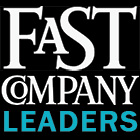gary c. rettinger
So this is one of those concepts that we all typically seem to have a very level understanding of from quite a young age yet we can find ourselves wanting to
redefine fairness because
"it only seems fair to us...this one time." Ahhh, now that's just really easy to justify to one's self from time to time, isn't it? Sometimes it's for the littlest of reasons that we may slip a bit down this very slippery slope nonetheless we're still sliding. What we really have to see and feel in this situation is how this is affecting your life and the lives of those around you. For that's what we can quite quickly give maybe a fleeting moment or two's thought to and that's it and we're done. And
it's done. What's done?
You're done at least for the time it takes you to realize that there are most often shadowy ramifications that'll most surely arise from this
"miss" in the game of fairness. In my way of believing and from the harsh reality of literally experiencing it just the same there are always repercussions that do just that as they come right back at
YOU. This is why it's of tantamount importance to have a consistent evenhandedness in every decision we make especially at moments of weakness brought on by stress and the sometimes paralyzing pain that comes right along with it. It's at these times we're at our most vulnerable as the human condition dictates that we'll do anything to get rid of pain whether it's already here or even when we're feeling it coming and it's
not even here yet. What happens at this point is compromise, serious compromise often times of what we know is the right thing to do. We look just a tad the other way make our decision and go about our way as if it's all just a-ok. Well, it isn't and inside our hearts we know that's the case and to live with that cutting and subtly burning feeling inside is just
bad with a capital b.
So, what's the solution? That's ultimately for each of us to decide for ourselves yet for me it's taking the path of self-respect and respect for others and choosing
integrity. And, should we falter and completely fail at times knowing we have and admitting it to ourselves is essential. And, critically ever so important as well is to
admit to those we have hurt in our moment of weakness and wrong decision. Truly expressing our sincere apology and opening ourselves up to doing what is right to make everything whole again is the
path to redemption. I have found myself making this subtle mistake even recently with the
pain of growth as the poor excuse in hindsight and for that I am most regretful and will do
whatever it takes to restore balance and never let it happen again.
Make the turning of the calendar to this new year of 2012 your time for being who you know you really can and must be with the gifts you've been so graciously given and
be the shining example we all know we can be just the same. After all if you're fair to yourself can you imagine how the whole entire world will treat you in kind? Now that's just beautiful.


 Follow @FastCoLeaders for all of our leadership news, expert bloggers, and book excerpts.
Follow @FastCoLeaders for all of our leadership news, expert bloggers, and book excerpts.

